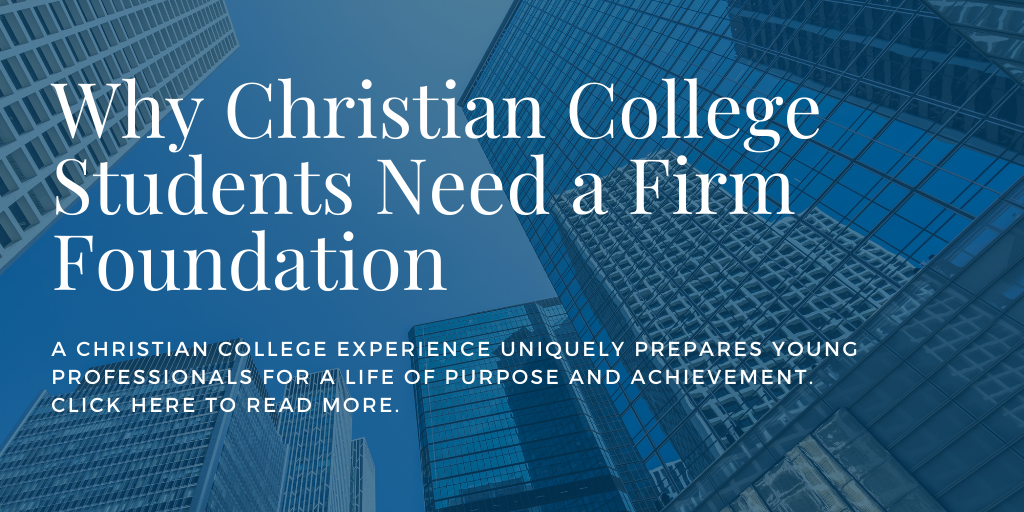%20(Twitter%20Post)%20(Blog%20Banner)%20(2).png?width=714&name=Conservatism%20%20(Instagram%20Post)%20(Twitter%20Post)%20(Blog%20Banner)%20(2).png)
In response to the 2021 Intercollegiate Studies Institute (ISI) National Conservatism conference, Ave Maria University professor James M. Patterson wrote an article in December highlighting the “growing divisions in the conservative movement, especially when it comes to the exertion of political power in economic life.” The 2016 election had initiated this modern division, Patterson says, because former President Trump appealed only to populists.
The current China and Taiwan questions have worsened the unity issue within civil society because the groups do not agree on terms. The two main options in response to China are to implement crony capitalism or to support small, competitive free markets.
Dr. Jesse Merriam, Associate Professor of Government at PHC, provides insight into the division, free markets, and the "growing divisions" within the conservative movement.
As a scholar of conservatism, Dr. Merriam says that divisions are not surprising because they have been part of the American Conservative movement since it was formed in the 1950s. “When fusionism was developed as an organized movement, it contained within itself a latent schism in that it was a fusion of traditionalist thinking with libertarianism thinking,” Dr. Merriam says.
The recent division seems to be merely the latest manifestation of some of the tensions in conservatism. In other words, this is nothing new. While it appears different, because of the 2016 election, the only differences are its features. “In my opinion,” Dr. Merriam says, “it’s part of the natural trajectory of some of the divisions that have existed since the conservative movement was organized in the 1950s.”
The primary divisions that surfaced during the 2016 election were globalization versus nationalism and the relationship of free trade to a free market. Two central questions that Dr. Merriam asks are: “Does being pro-free market necessarily require opposing tariffs and investment in domestic manufacturing? Likewise, does it require supporting open borders and being permissive when it comes to national identity issues?”
Josh Hammer and Julius Krein, the most vocal supporters of crony capitalism on the ISI Conference panel, believe that a “genuinely free competitive enterprise is a fantasy.” Because every economy is going to have some form of intervention in the marketplace, it seems reasonable to Dr. Merriam that, to ensure national security and social cohesion, regulating trade borders is a permissible position for a conservative to hold.
“To equate regulating borders and regulating global trade with command and control,” Dr. Merriam says, “seems to be a very promiscuous inference to me.” The possibility of a free enterprise within an Asian state does not necessarily infer a global economy or open borders.
The problem with the old paradigm of conservatism was resistance to any sort of investment or domestic manufacturing in the name of free trade, while, at the same time, permitting all sorts of regulation of trade in various ways.
“We have an extensive administrative state that regulates some of the finest details of commercial practices, but we can’t have regulation on imports so as to invest in domestic manufacturing?” Dr. Merriam questions. “That seems a little odd.”
Despite its small size, Dr. Merriam thinks that PHC addresses the wide range of political thought very well. “It’s hard when you’re a small school to really do justice to every perspective,” Dr. Merriam says. “I think given our size, we do a pretty good job.”
In his own classes such as American Political Institutions, Dr. Merriam tries to cover various viewpoints. This means examining not only the liberal and conservative way of thinking, but also the variations of conservative and liberal thought.
Through faculty like Dr. Merriam, PHC is able to equip its students with a well-rounded point of view. PHC does not teach its students what to think on these issues. Instead, it provides utilities for students to learn how to think rationally and intelligently for the glory of God.
---
Read: Exploring American Domestic Policy Holistically
Read: Values in Practice at PHC from a student of American Politics and Policy
---

.png?width=800&height=400&name=PHC%20(1).png)



